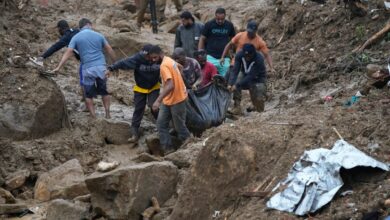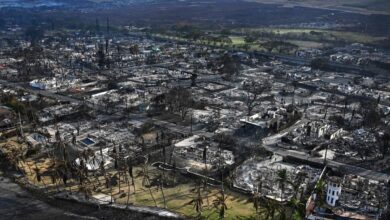‘Rapid, severe and unprecedented’ climate change poses catastrophic risk to global stability, experts warn

The scientists are not mincing their words: we should now look at the possibility of total human extinction due to the climate crisis.
Following a spectacularly bleak warning that humans must prepare for a “climate endgame,” after failing to properly explore what the climate crisis is bringing, scientists from leading institutions are banding together to seek support for what could be a major change in tack in how human-driven global environmental collapse is viewed.
Calling for a new report from the UN’s IPCC on “catastrophic climate change,” they hope that explaining the horror coming down the line will galvanise the global response to the crisis which is currently almost non-existent.
Speaking to The Independent, lead author of the research, Dr Luke Kemp from Cambridge University’s Centre for the Study of Existential Risk, said the climate crisis has been a factor not only in all known mass extinction events the world has seen, but has also played a critical role in the collapse of many human societies.
“We know that in the long-term climate change is capable of causing mass extinctions,” he said.
“We know that we could plausibly hit concentrations of greenhouse gases by the end of the century which are consistent with the triggering of past mass extinctions.
“Climate change has the potential to erase much of the biosphere and change the trajectory of life.”
He said in the past mass extinctions have been due to climatic changes which trigger a process called ocean hypoxia – warmer waters hold less oxygen leading to the growth of so-called “dead zones”, which can spread, leading to the deaths of huge numbers of species.
But today’s climate crisis is occurring harder and faster than any other global climatic change before.
“What is more disturbing is what we do not know,” Dr Kemp said.
“Current climate change is geologically unprecedented – it is faster than the changes involved in past mass extinctions.
“Mass extinction events are already an incredibly high bar – climate change will likely be a global catastrophic risk for humans well before it reaches mass extinction levels.”
Professor Tim Lenton from the University of Exeter, a co-author of the study, agrees.
Asked if governments’ failure to take the required action on the climate crisis was plotting a course to major instability in the near future, he said: “Yes – and I think it will be of the cascading risk kind.
“We are suffering unprecedented heatwaves and fires already. The fires in Europe last week are already causing people to move to get away from them.
“Current policies globally are taking us to a nearly 3C warmer world in which billions of people could be on the move. Alas we know that large scale movement of people is not widely welcomed and can often trigger conflict.”
Dr Kemp said examples of past societal collapses and crises which bear the fingerprint of the climate crisis include the demise of the Lowland Maya, the fall of the Western Roman Empire, and the Late Bronze Age collapse, which included the fall of the Mycenae Greek and the Hittite Empire.
“Impacts such as drought and migration appear to have led to a series of disastrous knock-on effects in the late Bronze Age world system,” he said.
“It destabilised the trade system and likely spurred war, rebellion, and declining state revenues.
Low water levels at Bewl Water reservoir in Lamberhurst, Kent, following record heat





